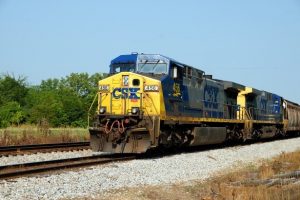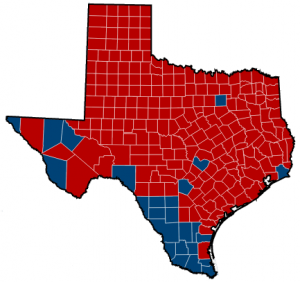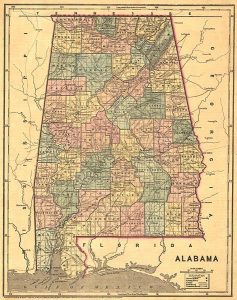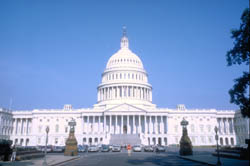Thirty-two states will soon benefit from 63 rail projects funded by the Bipartisan Infrastructure Law passed in late 2021 by the Biden-Harris Administration.  According to a press release by the Department of Transportation (DOT), the “Law includes the first-ever dedicated grant program to help communities eliminate points where railroad tracks intersect with roads, which have blocked vehicle and pedestrian traffic, led to deadly vehicle-rail collisions, and prevented first responders from reaching emergencies.”
According to a press release by the Department of Transportation (DOT), the “Law includes the first-ever dedicated grant program to help communities eliminate points where railroad tracks intersect with roads, which have blocked vehicle and pedestrian traffic, led to deadly vehicle-rail collisions, and prevented first responders from reaching emergencies.”
The grants – over $570 million – will be administered under the Railroad Crossing Elimination (RCE) Grant Program of DOT’s Federal Railroad Administration (FRA). $15.7 million will go to planning activities, with another $33.1 million for project development and design activities to determine future funding. Over 20% of the funding has been awarded to projects in rural areas or on Tribal lands.
Initial funding will focus on over 400 at-grade crossings nationwide. Improvements will not only enhance safety but will also address complaints over many years about delays and disruptions when drivers must wait long periods of time or take detours because of blocked crossings. These blockings also prevent first responders from arriving at emergencies quickly. The improvements include “adding grade separations, closing at-grade crossings, and improving existing at-grade crossings where train tracks and roads intersect.”
 Elected officials, mostly Republicans, who opposed the bill argued (following standard, decades-long precedent) that the bill serves to “break the bank and run up the federal credit card,” primarily benefiting supporters in their reelection bids.
Elected officials, mostly Republicans, who opposed the bill argued (following standard, decades-long precedent) that the bill serves to “break the bank and run up the federal credit card,” primarily benefiting supporters in their reelection bids.
These officials’ constituents need to know, however, that some of the major projects being funded are in their own backyards – meaning that, as President Biden pointed out when he was first elected through now, he and his Administration are working for all Americans, not just for those who voted for him or supported him financially.
Some highlights of projects in red states – those that voted for Donald Trump in the 2020 election – include:
- Houston, Texas. While Houston can be considered a “blue” city in the very “red” state of Texas, it can certainly be argued that any improvements to railroad crossings will benefit all drivers in that part of the Lone Star State, no matter those users’ political inclinations.
 The West Belt Improvement Project (Phase 1) will allocate $36,916,200 to “construct four underpasses, close four at-grade crossings, and eliminate seven at-grade roadway-rail crossings total – crossings where more than 850 incidents of train blockages have been reported this year [2023] through FRA’s online portal.” Texas has the notorious distinction of being second in the nation in grade crossing fatalities, so improvements funded by this project “will increase safety for drivers, pedestrians, and bicyclists, as well as reliable access for first responders.” The project’s funding is enhanced by the City of Houston.
The West Belt Improvement Project (Phase 1) will allocate $36,916,200 to “construct four underpasses, close four at-grade crossings, and eliminate seven at-grade roadway-rail crossings total – crossings where more than 850 incidents of train blockages have been reported this year [2023] through FRA’s online portal.” Texas has the notorious distinction of being second in the nation in grade crossing fatalities, so improvements funded by this project “will increase safety for drivers, pedestrians, and bicyclists, as well as reliable access for first responders.” The project’s funding is enhanced by the City of Houston. - Hammond, Indiana. The Governors Parkway Railroad Overpass Project, worth $7,029,392 and including $2.6 million in Federal Highway Administration funds, will construct a new, centrally located overpass and eliminate two grade crossings where two roads intersect with Norfolk Southern Railway’s rail line. This is significant due to the area’s proximity to Chicago’s extensive rail network. The name of this project derives from the designation of the new overpass and road alignment, Governor’s Parkway. When completed, the Parkway will benefit drivers, pedestrians, and emergency responders with its single lane of vehicle travel in each direction and a multi-use path for pedestrians and bikers. Indiana, of course, is the home of former Vice President and current GOP presidential candidate Mike Pence, who represented the state in the US House from 2001 to 2013 and as Governor from 2013 to 2017. Voters should pay close attention to Pence’s negative rhetoric on projects of the Biden-Harris infrastructure bill, if any is forthcoming, for two important reasons. First, Pence pushed an infrastructure deal in Indiana that “collapsed amid construction delays, allegations of financial mismanagement and a spike in traffic accidents, culminating in the return of the section of the road under private control to the state in mid-August of [2017].” Second, Pence promoted a similar infrastructure bill, based largely on privatization, that was the foundation of Trump’s $1 million proposal – which went nowhere and was described as a “mirage” by the nonpartisan Center on Budget and Policy Priorities.
- Pelham, Alabama.
 The $41,766,038 project will build a bridge and eliminate two existing at-grade crossings on Shelby County Road 52. This construction will serve to increase safety and mobility in the city and solve the problem of blocked crossings. Currently Shelby County Road 52 cuts the city in half and carries 24,000 drivers daily; thus half of the city is subject to the inability of emergency and HAZMAT responders to do their important work when the crossings are blocked by trains. The infrastructure improvements will also ameliorate supply chain issues throughout the entire State: more than 30 trains head for the Port of Mobile via this route every day.
The $41,766,038 project will build a bridge and eliminate two existing at-grade crossings on Shelby County Road 52. This construction will serve to increase safety and mobility in the city and solve the problem of blocked crossings. Currently Shelby County Road 52 cuts the city in half and carries 24,000 drivers daily; thus half of the city is subject to the inability of emergency and HAZMAT responders to do their important work when the crossings are blocked by trains. The infrastructure improvements will also ameliorate supply chain issues throughout the entire State: more than 30 trains head for the Port of Mobile via this route every day. - The Bipartisan Infrastructure Law is also funding projects in Fostoria, Ohio ($7,245,000); Broward County, Florida ($15,440,000); Davenport, Iowa ($7,756,862); Kansas City, Missouri ($2,000,000); and other red states.
- States that voted for Biden in 2020 (some of which have historically been red) to which funds have been awarded under the Law include California, Delaware, Georgia, Illinois, Maryland, Michigan, Minnesota, New Mexico, New York, Oregon, Pennsylvania, Virginia, Washington, and Wisconsin.
President Biden was able to attract 19 Republicans in the Senate, including the powerful Minority Leader, Mitch McConnell (R-KY), and 13 Republicans in the House to vote for this bill. National Public Radio described the bill as “a historic piece of legislation that could reshape American lives for decades.” This is not only a victory for the Biden-Harris Administration but for all of us, even if the funds will not be spent in our state.
As with any huge initiatives that depend on taxpayer dollars, we taxpayers must insist that funds are spent responsibly, that there is full accountability for every project, that there is as little waste as possible, and that all involved behave ethically and with integrity. Conservatives are often concerned about “big government” and argue that problems can best be solved through the markets and the private sector. Those on the left might be wise to take these concerns seriously during deliberations; there are certainly situations in which alternatives to federal dollars can legitimately be considered – especially in the area of infrastructure improvement, Europeans are way ahead of us precisely because they routinely make significant use of public-private collaborations. Both sides need to listen to arguments that are supported by facts and data.
For now, we can be grateful that a majority of legislators in Washington, DC, have voted to make our national rail system better, stronger and safer.
